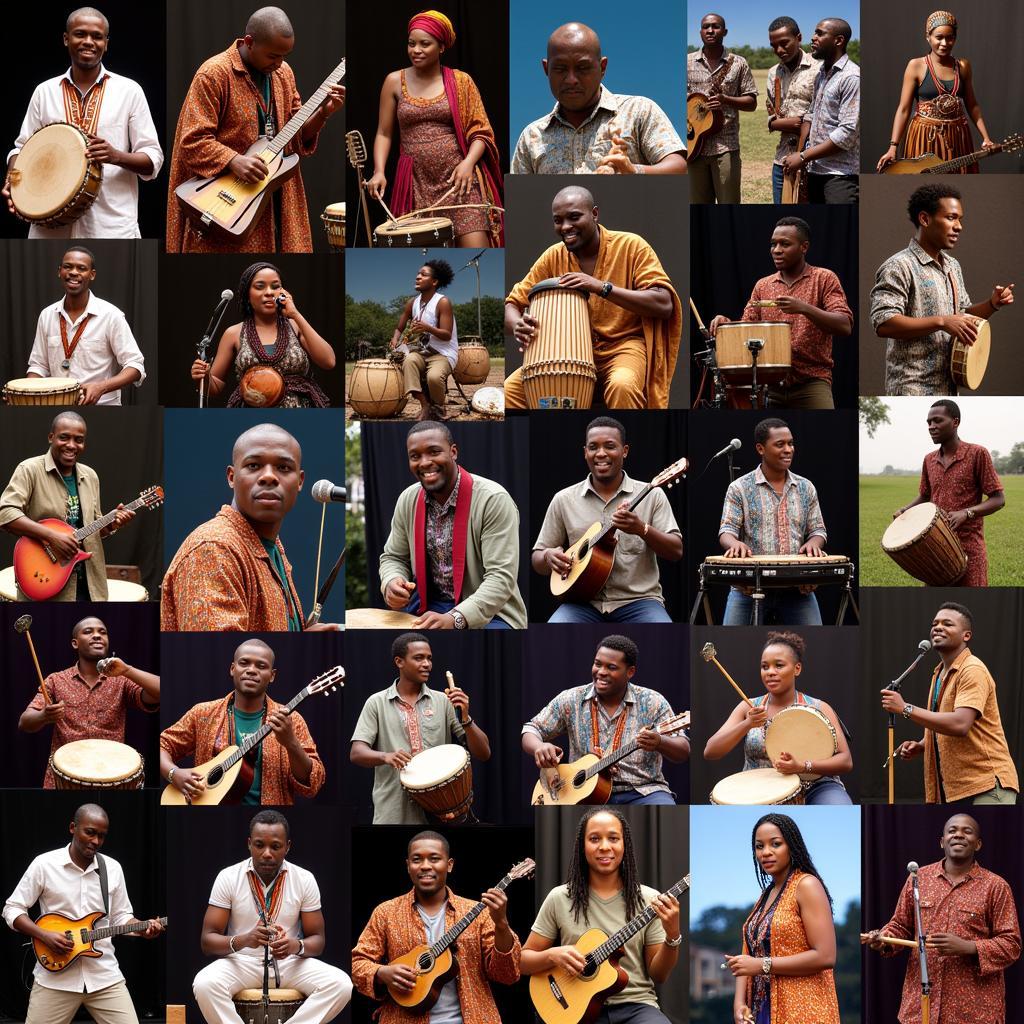African Countries Independence: A Journey to Freedom
The journey of African Countries Independence is a complex and fascinating story of resilience, struggle, and ultimately, triumph. From the mid-20th century onwards, the continent experienced a wave of liberation movements, as nations threw off the yoke of colonialism and embarked on the path to self-determination. This period of transformation dramatically reshaped the political landscape of Africa and continues to influence the continent today.
The Winds of Change: A Continent Awakens
The latter half of the 20th century witnessed an unprecedented surge in nationalist movements across Africa. Fueled by the injustices of colonial rule, Africans began to demand self-governance and control over their own destinies. World War II, which weakened European powers, further catalyzed these movements. The rise of Pan-Africanism, a philosophy advocating for the unity and solidarity of all people of African descent, played a crucial role in inspiring and coordinating these struggles. You can find a detailed list of independence dates at african countries independence dates.
Early Pioneers of Independence
Ghana, under the leadership of Kwame Nkrumah, became the first sub-Saharan African nation to achieve independence in 1957. This momentous event signaled a new era for the continent and inspired other nations to follow suit. Guinea, led by Ahmed Sékou Touré, followed in 1958, boldly declaring independence from French rule. These early victories demonstrated the power of organized resistance and fueled the hopes of millions across Africa.
The Challenges of Nation-Building
Independence, however, was not a magic bullet. Newly independent nations faced numerous challenges, including establishing stable governments, building robust economies, and addressing the legacy of colonialism. Many countries struggled with ethnic tensions, political instability, and economic underdevelopment. More information on each country’s journey can be found at african countries and their independence.
The Struggle for Economic Independence
Many African nations found themselves economically dependent on their former colonial powers, often trapped in exploitative trade relationships. The struggle for true economic independence became a key focus for many post-colonial governments. Some countries even opted to change their currencies after gaining independence, as detailed in african countries that changed their currency after indeendent.
“Economic independence is crucial for true sovereignty,” explains Dr. Amina Omar, a renowned historian specializing in African post-colonial development. “It allows nations to chart their own course and determine their own future.”
The Legacy of Colonial Borders
The arbitrary borders drawn during the colonial era continue to be a source of conflict in some parts of Africa. These borders often divided ethnic groups and ignored pre-existing political structures, creating tensions that persist to this day.
“The colonial legacy continues to cast a long shadow over the continent,” observes Professor Kofi Asante, a leading expert on African political geography. “Addressing the issue of borders is essential for lasting peace and stability.”
Celebrating African Independence
Despite the challenges, African countries independence is a testament to the strength and resilience of the African people. It’s a story of courage, determination, and the unwavering pursuit of freedom. You can find a comprehensive list of independence days ordered by date at african countries independence day in order of date. Each year, African nations celebrate their independence with pride, commemorating the sacrifices made by their forefathers and reaffirming their commitment to self-determination. For a broader look at independence days, visit african countries independence day.
“Independence day is a time for reflection and celebration,” says Nana Yaa Konadu, a prominent cultural commentator. “It’s a time to remember the past and to look forward to the future with hope and optimism.”
Conclusion
The story of African countries independence is a multifaceted narrative of struggle, triumph, and ongoing challenges. While the journey towards true self-determination continues, the spirit of independence remains a powerful force shaping the future of the continent.
FAQ
- When did most African countries gain independence? Most African countries gained independence during the 1960s.
- What were some of the main challenges faced by newly independent African countries? Challenges included building stable governments, developing economies, and addressing the legacy of colonialism.
- What role did Pan-Africanism play in the independence movements? Pan-Africanism fostered unity and solidarity among African peoples, inspiring and coordinating their struggles.
- What is the significance of Ghana’s independence in 1957? Ghana’s independence was a landmark event, signaling a new era for the continent and inspiring other nations.
- How do African countries celebrate independence day? Celebrations include parades, traditional dances, speeches, and community gatherings.
For support, please contact us at:
Phone: +255768904061
Email: [email protected]
Address: Mbarali DC Mawindi, Kangaga, Tanzania.
We have a 24/7 customer service team.




